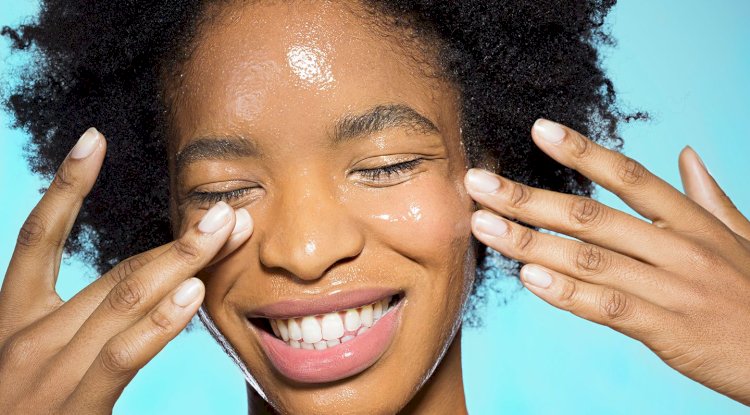5 Common Signs of Sleep Deprivation
Are you getting enough sleep? Sometimes you may feel like you are, then suddenly feel like you are worn out.
Sleep deprivation can affect your entire body, so the signs that you need more sleep can be very subtle or sometimes unexpected. Low sex drive and anxiety can both be signs of sleep deprivation.
Before we dive into the signs that you’re sleep-deprived, let’s first learn what sleep deprivation is.
What is Sleep deprivation?
Sleep deprivation refers to getting less than the needed amount of sleep, which, for adults, ranges from 7-9 hours of sleep every night. Sleep deprivation is when you don’t get the sleep you need, and it’s estimated to affect around one-third of American adults, a problem that has only worsened in recent years. It’s common to miss a day’s worth of sleep. It won’t cause major health problems, but you should expect to feel tired and uneasy. There’s more to sleep deprivation than just feeling exhausted during the day. Let’s check out the signs that you need more sleep.
Here are 5 common signs of sleep deprivation
1. Drowsiness
When you’re feeling abnormally sleepy or tired during the day, it’s commonly known as drowsiness. Feeling extremely tired during the day is one of the hallmark signs of sleep deprivation.
Drowsiness can lead to more symptoms like forgetfulness or falling asleep at inappropriate times. People with excessive drowsiness during the day may feel sluggish and have a difficult time staying awake. Oftentimes, this results in microsleeps, in which a person dozes off for a matter of seconds. Others manage to live with drowsiness. However, it may greatly limit your ability to work, drive, and be productive.
2. Easily angered
If you’re not getting enough sleep, you won’t just develop bags under your eyes. You may also develop anger issues. Sleep deprivation has been connected with a variety of physical, mental, and emotional issues. In the short term, sleep deprivation can increase negative emotions like anger, frustration, and impatience. You may be less capable of responding to frustrating situations because of these.
Sleep-deprived individuals have a tendency to act toward increased anger and distress, and as more time passes, high stress caused by sleep deprivation affects the mood negatively. Try to avoid tasks that are incredibly frustrating, and try to schedule them for another day. This is why it’s really important to get a good night’s sleep before very important events.
3. Feeling fatigued
Fatigue is best defined as a constant state of tiredness. Although physical and mental fatigue is very different, they often happen together. This continues to develop over time and often causes a decrease in your physical, and mental levels. You’re very likely to feel demotivated to do activities you usually enjoy doing, like playing games or socializing.
Signs that come with sleep deprivation, such as fatigue, may reflect physical and/or mental limitations on the individual and may show a decrease in mental and physical capacity, which makes you very unproductive throughout the day.
4. Easily irritated
Irritability is best defined as a feeling of agitation. But others call agitation a worse form of irritability. It doesn’t matter the term you use, when you’re irritable, you’re more likely to become frustrated or you become more easily upset. You might commonly experience it when faced with highly stressful situations. A lot of people feel irritable from time to time, and it’s very common. For example, it’s perfectly normal to feel cranky after not sleeping well the night before, because when you’re sleeping, your body is resting and reconstructing itself. This is because your body is preparing you for the next day. But when you’re sleep-deprived, you easily get cranky and irritated.
5. Increased appetite
Having cravings and an increased appetite is common if you’re sleep-deprived. Sleep deprivation has a negative impact on your health and wellbeing. One of the signs of sleep deprivation is an increase in the number of calories you’re consuming. Studies have shown that sleep deprivation makes you less productive and makes you less capable of saying “no” to junk food! It affects how well your body is responding to insulin, which almost always to an increase in appetite. The connection between sleep deprivation and increased appetite is likely due to the imbalance of hormonal functions in the body. Getting good quality sleep promotes a healthy balance of hormones throughout the body, especially those that regulate your appetite, and metabolism.
Good quality sleep also promotes the healthy production of leptin and ghrelin. Leptin regulates your body’s energy balance by controlling feelings of hunger. It is also tasked to regulate fat storage. Ghrelin on the other hand is a hormone that is secreted in the stomach that acts as a counterpart to leptin. Ghrelin boosts your appetite and fat production.
Bottom Line
Sleep deprivation is very common among both adolescents and adults. Most people can tolerate short-term sleep deprivation. But as sleep deprivation continues, it becomes harder and harder to stay awake when you need to. However, it’s possible to recover or prevent sleep deprivation with proper sleeping habits and get better quality sleep on a constant basis. If you still have trouble getting a good night’s rest, it’s best to consider consulting a doctor.
Share
What's Your Reaction?
 Like
0
Like
0
 Dislike
0
Dislike
0
 Love
0
Love
0
 Funny
0
Funny
0
 Angry
0
Angry
0
 Sad
0
Sad
0
 Wow
0
Wow
0
















